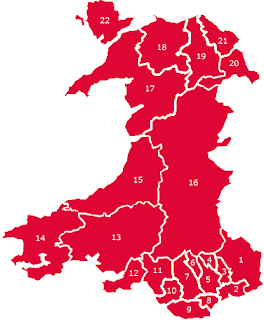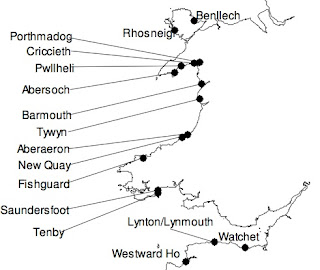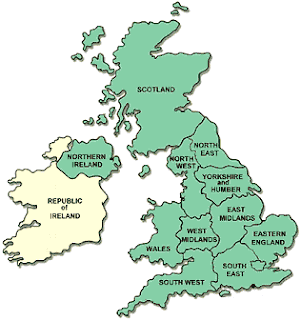 One thing you can say about Leighton Andrews is that he is not slow in coming forward.
One thing you can say about Leighton Andrews is that he is not slow in coming forward.His statement yesterday has sent shockwaves of the 8.0 richter scale variety throughout the entire university sector in Wales.
Here is what he said in the chamber yesterday
“Wales has been dogged for years by many institutions which are too small to cut a mark internationally, too small to withstand and respond to the growing pressure of international competition, and in danger of wasting resources competing with neighbours rather than looking out from Wales to win reputation and research income. Currently only 36% of institutions in Wales have an annual income which is above the UK median, a situation that has changed little over many years. Additionally, colleagues will recall the findings of the PWC review that only 48% of university spending went on teaching, research and knowledge transfer, and 52% on support services. Today I am pleased to report that, in response to my remit letter, HEFCW has determined that by 2013 75% of HE institutions in Wales will have an annual income above the UK median, and none will be in the lower quartile. Llywydd, this target does not mean fewer students. But it is likely to mean fewer vice chancellors. We will have significantly fewer HE institutions in Wales but they will be larger and stronger. HEFCW will work with HE institutions to achieve this smoothly and rapidly with my full backing and of the Cabinet”.
So there we have it. The Minister has essentially told the vice chancellors that there will be fewer universities in Wales in 2013 i.e. they have essentially a couple of years to merge with other institutions in Wales.
So what are the potential mergers?
- Bangor and Glyndwr – would make sense given the distinct geographical region that is North Wales and the business community in the region would be 100 per cent behind a new University of North Wales but as someone who was involved at the highest levels in the aborted merge talks of 2003, I have doubts if this would happen, especially given the appointment of a new Vice Chancellor at Bangor.
- Bangor and Aberystwyth – would make sense in terms of establishing a rival research led institution to Swansea and Cardiff but this would only work if there was a clear delineation in subject areas across the two campuses as the distance is too great for any meaningful interaction i.e. science and business at Bangor; arts, humanities and social sciences at Aberystwyth. In that case, the Minister had better put a stop to the new Pontio Arts Innovation centre asap.
- Swansea University and Swansea Metropolitan – potentially this could work but would the research led Swansea University welcome such a move? On the other hand, would the cash rich Swansea Met, which is the very model of an efficiently run institution wish to just hand over its money to a university that is less financially viable?
- Swansea Metropolitan and Trinity St David’s – this would create a new super vocational university for West Wales, especially if it was strongly linked into the FE sector. However, would the Trinity St David’s focus on becoming the premier Welsh language university in Wales fit with Swansea Met’s aims of a technologically driven city-based institution
- Glamorgan and Newport – seems most likely as the Minister is keen to push forward further with his University of the Valleys proposal where both institutions have worked closely together. The question, of course, is whether UWIC, which has developed rapidly over the last few years, would also be forced to join this merger and create a super technical university for South East Wales?
Of course, the real question is whether having less institutions in Wales will improve the quality of our institutions. There is certainly no guarantee that the mergers will improve research performance. For example, the University of Wales Cardiff was ranked 8th in the UK during the 2001 Research Assessment Exercise and yet, after the merger with the School of Medicine three years later, had plunged to 22nd in the 2008 research review.
If the Minister is keen to improve the research funding of Welsh institutions, then he should also make the case for Barnetising the research council income which is currently non-devolved. That would bring an additional £40-50 million into Wales every year to strengthen our research base.
There is also the issue that larger institutions are no guarantee of student quality in the long term. In fact, with pressures on universities to save money, the temptation will be to have larger classes and smaller numbers of teaching staff.
Finally, the smaller institutions in Wales tend to be exceptionally well managed financially whilst the larger ones have struggled in recent years. Would merger merely mean that the reserves of the better managed universities would be used to deal with the financial problems of the larger institutions?
Given this, the real question is how the universities in Wales, or more importantly, their leaders, will react to such a strong statement of intent? Many expect them to make some noise at first but eventually quietly capitulate to the plan and therefore ratifying the Minister’s earlier statements about the lack of leadership within higher education in Wales.
On the other hand, they could surprise us all and call the Minister’s bluff on the veiled threats to funding cuts for non-compliance and tell him, to use an academic term, to sod off.
After all, universities are independent institutions whose governing bodies should make decisions that are in the best interest of the university, its staff and its students and not for political expediency that suit a Minister who may no longer be in power in 2011.
However, such resistance would only work if the sector acted as one and not as individual institutions that act only out of self interest. Indeed, if the universities do go down this latter path, then the Minister may have inadvertedly succeeded in making the sector stronger for the benefit of the Welsh economy, but not in the way he envisaged.
Perhaps their best defence against mergers is the point that was made yesterday in the Western Mail when it was proposed that the number of councils in wales should be cut.
The response? "Reorganisation is hugely expensive and bearing in mind the scale of the challenges it is vital that we concentrate all our energies on delivering frontline services and protecting our communities.”
For councils, read universities?
One final point - there is also a political angle to this which no-one has yet mentioned.
Given that all mergers eventually lead to job losses and no guarantee of any improved service to students (which would take years to materialise anyway), could the Labour-Plaid coalition be handing the Liberal Democrats an electoral lifeline in seats such as Ceredigion, Swansea West, Wrexham and Newport East at the next Assembly elections. Certainly, if I were Kirsty Williams or a member of her team, I would start planning part of the next campaign around this very issue.



















